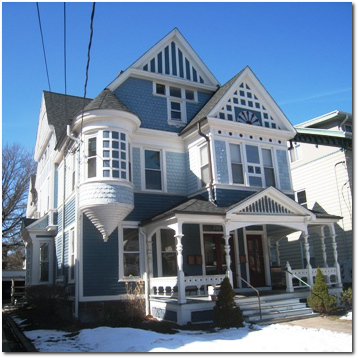How strong is the bid we just submitted for that property you love? Are you going to get the house?
Sellers are receiving multiple offers on a regular occasion this spring. Buyers are lined up, anxious to buy a home, and willing to submit offers on homes as soon as they hit the market. In many cases buyers know they need to write up their best offer immediately – there may not be an opportunity to negotiate.
 But how good is that “best” offer?
But how good is that “best” offer?
The first thing the seller is going to look at is the price. They’re going to line up all the bids and look to see who is paying the most money, and how much more the highest bid is over the next highest bid. Buyers can control how much they bid for a home, and pick a number that reflects the property’s value to them.
If more than one bid comes in at about the same price, then the other terms in the offer become more important in the seller’s decision making process. This can be the difficult part for buyers – it comes down to the type of financing and the other conditions proposed for the deal. Most buyers have no control over the type of financing they use, as their cash position and income determine how they can pay for their new home.
Here is how we see sellers rank the strength of competing bids with a similar offer price but different financing terms.
The Cash Offer
Cash buyers don’t have to go through the mortgage underwriting process, which is a big plus for the seller. They may also choose to waive the right to an appraisal, something required by any lender and therefore any buyer using mortgage financing. Since the buyer generally has to demonstrate they have the cash to complete the deal, there is little financing risk to the seller. Sellers might accept a slightly lower bid if it’s cash, but it’s unlikely that they’ll leave too much money on the table. The main risk with a cash buyer is that they may try to be pushy because they have a high opinion of themselves and/or their offer. Cash is attractive, but cash is not king.
Conventional Mortgage with Large Downpayment
Buyers can now get conventional mortgages with as little as a 5% down payment. But realize from a seller’s standpoint, the larger the down payment, the stronger your offer. The smaller the mortgage amount, the more likely it is that you’ll be approved for that mortgage. That lessens the risk to a seller. If you have cash available and know you’re in a multiple offer situation, you may want to increase the down payment component to improve the attractiveness of the offer.
Government Backed Mortgage (FHA, VA, CHFA, USDA)
Government backed mortgages require a small down payment from the buyer, typically 3.5%. These mortgages are also a little more stringent on the appraisal inspection. Sellers usually view them as somewhat more risky than conventional loans because of the low down payment amount and additional appraisal inspection requirement. This type of financing is typically fine if you’re the only bidder. However, if you’re competing against others and there is another buyer with a conventional mortgage, the seller would most likely favor that offer if the rest of the terms in the offer are acceptable to them.
Conventional Mortgage with a Hubbard Clause (House under Contract)
Some buyers already own a property and need to sell it in order to buy their next home. Not everyone can afford or wants to carry two mortgages at once. This is what we locally refer to as a Hubbard Clause – you need to sell your current house in order to buy the next house. Hubbard Clauses are typically viewed unfavorably. Even if your current property is under contract with a buyer, that deal could still blow up for a variety of reasons. The seller of the home you want to buy has no control over your home sale so it’s additional risk. The way to strengthen this type of offer is to come to a seller with most, if not all, of the contingencies on your sale cleared. In that respect, you would be viewed as similar to a buyer with a conventional mortgage with no property to sell.
Conventional Mortgage with a Hubbard Clause (House for Sale, But Not Under Contract)
Typically the only time you’ll find a seller who is willing to take your offer with a Hubbard Clause when your house is not under contract is if you’re the only game in town – when no one else is interested in their house. Otherwise you need to be willing to pay a lot more than others bidding on a property, and show that your house is likely to sell quickly, to capture the seller’s interest.
There are no absolute rules about which type of financing is the best. Each seller is different, and reflects on the different real estate experiences they have had when they evaluate offers.
This ranking captures what we have seen in the market with two caveats. First, money talks, so a high bid can win a home despite less than ideal financing. And second, there are other terms in an offer that could influence a seller’s decision. We’ll review them some other time, but they are almost always prioritized behind the offer price and the type of financing.